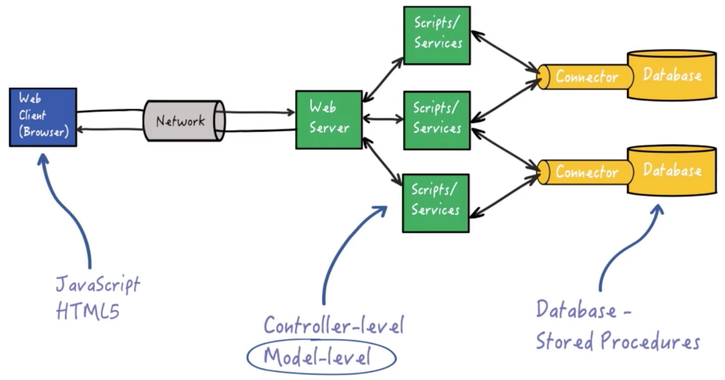Data Validation in Web Apps
Introduction
Data validation is the process of ensuring your web application
operates on clean, correct and useful data.Example:
- – Ensure a user provides a valid email address, phone number, etc.
- – Ensure that inputs (505) 255-1234, 505-255-1234 and 5052551234 are all treated the same.
- – Ensure that “business rules” are not being violated, e.g., a comment cannot be stored without a post ID.
The most common web application security weakness is failure to validate client-side input – SQL injection, cross-site scripting and buffer overflow attacks are enabled.
Data Validation in Web Apps

Client-side – Involves checking that HTML forms are filled out correctly.
- – JavaScript, running in the browser, has traditionally been used.
- – HTML5 now has more specific “input types” that can be checked, along with a “required” attribute.
- – Works best when combined with server-side validations.
Server-side – Checks made after an HTML form has been submitted.
- – Database (stored procedures) – Database-dependent, so not portable. Useful if many applications are using the database.
- – Controller-level – We’ll see later that you don’t want to put too much logic in the controller (keep them skinny).
- – Model-level – A good way to ensure that only valid data is stored in your database, in a database agnostic way.
ActiveRecord Callbacks
Think of the objects in an OO system as having a lifecycle – they are first created, can later be updated and also destroyed.
ActiveRecord objects have methods that can be called in order to ensure their integrity at the various stages of their lifecycle. Ex. – Don’t create a new user object if the user already exists in the database. – Ensure that all of an object’s attributes are valid before allowing it to be saved to the database. – When destroying an object, destroy all of the objects that depend on it.
Callbacks are methods that get called at certain points in an ActiveRecord object’s lifecycle – they are “hooks” into the lifecycle, allowing you to trigger logic before or after the state of an object changes.
ActiveRecord Validations
Validations are a type of ActiveRecord callback that can be used to ensure only valid data is stored in your Rails databases.
The create, save and update methods trigger validations, and will only allow a valid ActiveRecord object to be saved to the database.
Validations are defined in your models.
Example:
class Person < ActiveRecord::Base validates_presence_of :name validates_numericality_of :age, :only_integer => true validates_ confirmation_of :email validates_length_of :password, :in => 8..20 end
Latest Post
- Dependency injection
- Directives and Pipes
- Data binding
- HTTP Get vs. Post
- Node.js is everywhere
- MongoDB root user
- Combine JavaScript and CSS
- Inline Small JavaScript and CSS
- Minify JavaScript and CSS
- Defer Parsing of JavaScript
- Prefer Async Script Loading
- Components, Bootstrap and DOM
- What is HEAD in git?
- Show the changes in Git.
- What is AngularJS 2?
- Confidence Interval for a Population Mean
- Accuracy vs. Precision
- Sampling Distribution
- Working with the Normal Distribution
- Standardized score - Z score
- Percentile
- Evaluating the Normal Distribution
- What is Nodejs? Advantages and disadvantage?
- How do I debug Nodejs applications?
- Sync directory search using fs.readdirSync